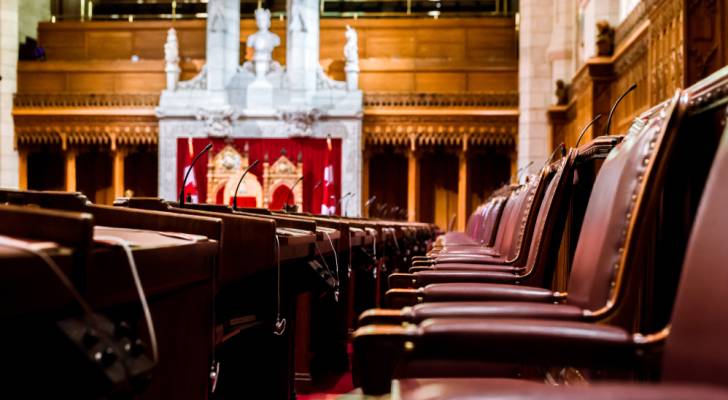
In the spring federal budget, Prime Minister Justin Trudeau proposed an amendment to the capital gains tax, to take effect in the summer. But, with the announcement that Trudeau is stepping aside before the amendment receives Royal Ascent, Canadians are left questioning who their next leader will be, and, for many, what this will all mean for the proposed amendment.
On January 6, Prime Minister Trudeau announced his intention to resign as leader of the Liberal Party and as Prime Minister, once his successor is chosen. The Liberal Party has set March 9 as the date to vote for the new leader and they will be sworn in as Canada’s next Prime Minister shortly afterwards.
Also on January 6, the Governor General granted the Prime Minister’s request to prorogue Parliament until March 24th, 2025. Parliament had been scheduled to resume on January 27th.
The suspension of Parliament by prorogation means the termination of the current session of the 44th Parliament, which was summoned following the 2021 federal election, and resulted in a Liberal minority government.
With this announcement, all business is terminated, meaning any bills that have not already received Royal Assent are said to “die” on the Order Paper. In order to proceed with the bill in a new session, it must be reintroduced.
Capital gains explained
A capital gain is the profit made on the sale of an asset, such as stocks, bonds, real estate or other investments. In other words, when the selling price exceeds how much the asset was originally paid for, that profit is considered a captial gain. Capital gains tax is applied to that profit.
Unlike in some countries, capital gains tax in Canada is generally not based on the entire profit, but on only half of the capital gain, meaning that only 50% of your capital gain is subject to taxation.
The proposed capital gain amendment was to increase the inclusion rate from 50% to 66.67% for tax calculated on the portion of capital gains in excess of $250,000. The proposal was included in the federal budget of April 16, 2024, to take effect June 25. Taxpayers had two months to determine if affected assets ought to be sold before June 25 in order to lock in the full amount of the capital gain at the lower rate.
The change in the capital gain inclusion rate must be implemented by way of amendments to the Income Tax Act.
Amendment stalled
On September 23, 2024, the government tabled a Notice of Ways and Means Motion (NWMM) to introduce the relevant bill to amend the Income Tax Act and Regulations. This motion is a form of official notice that a financial or tax-related law is coming soon and signals the begining of a legal process to make those changes.
The tabled legislation did not reach First Reading in the House of Commons. Both the NWMM and the proposed amendments to the Income Tax Act have now been terminated by prorogation.
Typically, the Canada Revenue Agency (CRA) begins to administer tax changes once they are proposed, on the assumption that the proposals will ultimately be passed into law, so to provide certainty to taxpayers. This is grounded in parliamentary convention, and retroactive legislation to enact announced proposals has long been supported by the courts.
There are also practical reasons to begin to administer proposed changes once they are announced, such as easing compliance burdens on taxpayers and the CRA.
Capital gains tax in 2025
In line with past practice, the CRA has confirmed that it will continue to administer the proposed capital gain inclusion rate and issue relevant tax forms up to January 31 of this year, reflecting the proposed increase for gains realized after June 25th, 2024.
Parliament is scheduled to resume on March 24, with the new Prime Minister leading the federal government.
When Parliament is back in session, it is conceivable that the Speech from the Throne could indicate an intention to reintroduce the proposed capital gain amendments to the Income Tax Act.
However, the leaders of all major opposition parties have said they intend to vote non-confidence in the Liberal government once Parliament resumes, which would result in the dissolution of the 44th Parliament and the scheduling of a federal election this coming spring.
Taking capital gains to the ballot box
The proposed capital gains inclusion rate increase will no doubt be one of many election issues.
Current polling strongly indicates the outcome of the election will be a large Conservative majority, with Party Leader Pierre Pollievre at the helm. Unlike the Liberal Party, the Conservative Party does not support the proposed increase in the capital gain inclusion rate.
It is, therefore, highly unlikely that the proposed amendments will be passed in Parliament and become law.
What will happen if the legislation does not pass?
The CRA has indicated it will cease administering the proposed changes to the capital gains inclusion rate if it appears Parliament will not proceed with the necessary legislation. For those taxpayers who file taxes for 2024 based on the anticipated proposed increase, CRA will be obligated to process refunds based on the 50% inclusion rate once the proposal is abandoned by a new government.
This article Prorogation of Parliament and the proposed capital gains tax amendment
This article provides information only and should not be construed as advice. It is provided without warranty of any kind.